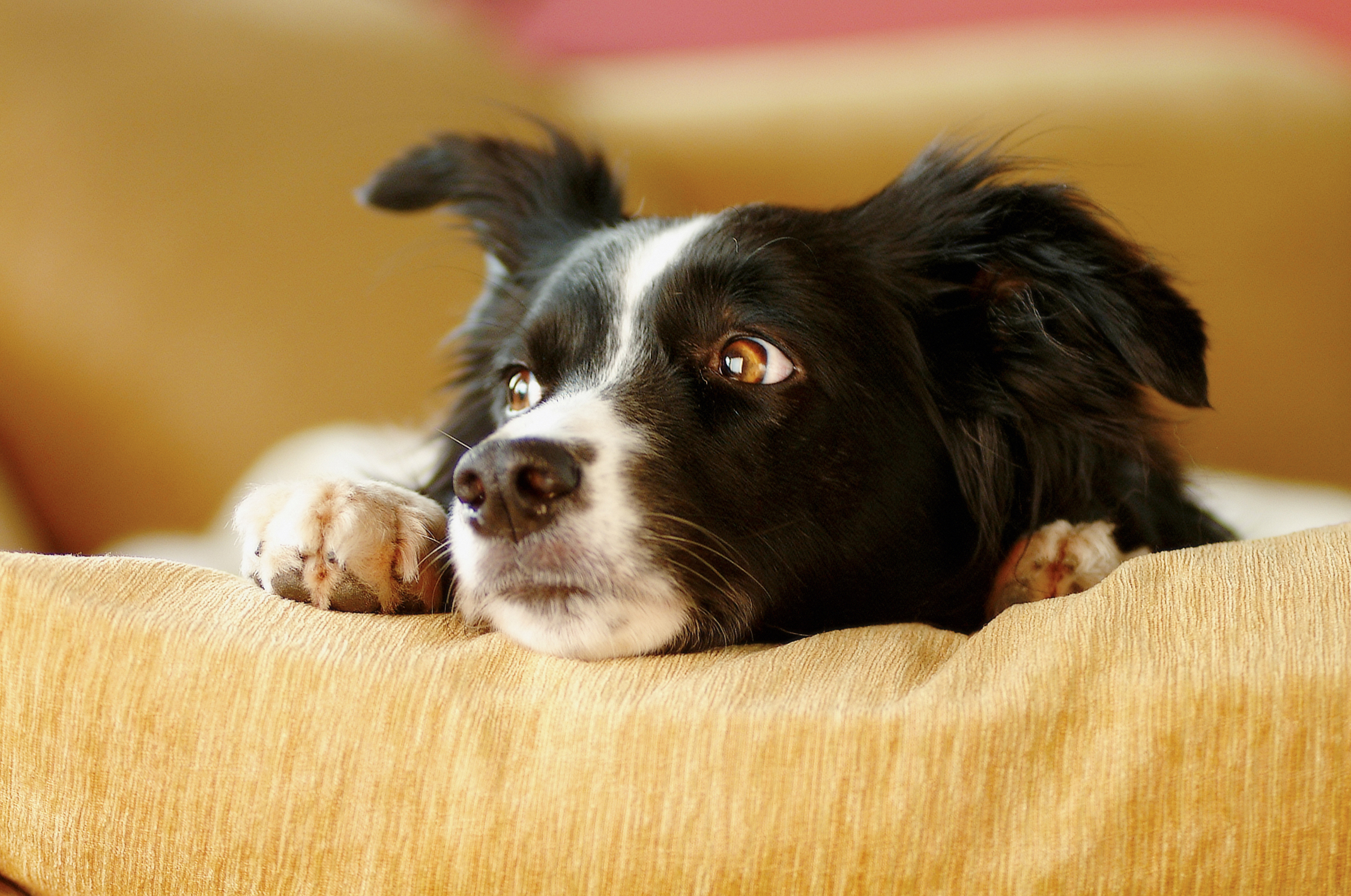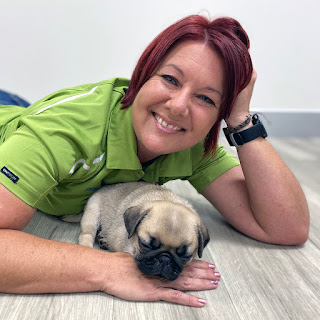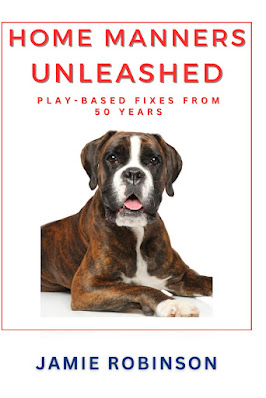The increasing number of dogs being prescribed anti-anxiety medication has raised alarm amongst the dog-loving community, and while these medications can be life-changing in the right context, leading dog behaviourist and bestselling author Sarah Rutten said the trend highlights a deeper problem dog owners need to face.
“This growing trend is saddening, but unfortunately, not surprising,” Sarah said. “We as dog guardians need to not only ask how to treat anxiety or behavioural issues, but also ask why our dogs are anxious in the first place.”
“Anxiety is a symptom, not the root cause of troubling behaviour in dogs. Whether it’s unmet needs, past trauma, poor socialisation or even undiagnosed health issues, we have to get curious about our dogs and take anxiety as a signal that something isn’t right in their world.”
Unpacking the Root Causes of Canine Anxiety: What’s Really Going On?
As founder of The Canine Perspective, a practice grounded in force-free, evidence-based dog training, Sarah has seen first-hand the dramatic rise in anxiety in dogs, particularly since the protracted lockdowns, and the subsequent surge in medicinal interventions.
“During the lockdowns, Aussies were spending far more time at home, and we also saw a rise in dog adoptions during this time,” Sarah said. “Understandably, people wanted to add a furry friend to the family during what was an incredibly tough and isolating time.”
“But due to the circumstances of that period, many of these dogs missed out on critical early socialisation with other dogs and people. Even five years later, I’m still seeing the fallout of this, manifesting as a double whammy of reactivity and separation anxiety.”
“Sadly, these dogs simply weren’t prepared for the world we now expect them to navigate.”

“Much like in humans, the gut-brain connection plays a significant role in dogs,” she explains. “Imbalances in the gut microbiome, as well as undetected food sensitivities or allergies, can contribute to behavioural issues like anxiety and hyperactivity.”
“When a dog’s diet is better tailored to their individual needs, whether through improved nutrition, elimination of allergens or increased support for gut health, we often see a shift in behaviour as well.”
Adding to the challenge is the reality of time-poor owners, many of whom are juggling full-time work and various other commitments. This often translates to dogs being under-stimulated, under-exercised, and isolated for long periods.
“Dogs are social, intelligent beings. When their needs for connection, movement, and mental enrichment aren’t met, anxiety is often the result,” Sarah said.
Beyond training, diet, or exercise, Rutten highlights a more sobering reality: dogs often mirror our own emotional states. With anxiety and burnout affecting more and more Aussies, our dogs, attuned to our energy and behaviour, can internalise that stress.
“The household ecosystem matters. If stress is high and connection is low, dogs pick up on that,” Sarah said.
“Sometimes, the first step to helping your dog manage their anxiety and stress is checking in with yourself and your home environment.”
“When used thoughtfully and with the advice of a vet, anti-anxiety medication can be incredibly helpful for certain dogs,” Sarah said.
“But it should never be used as a quick fix or band-aid.”“The goal is to help the dog reach a ‘sub-threshold state’ where their brain is calm enough to think, process and learn.
“In dogs with acute anxiety, the amygdala – the emotion-processing centre of the brain – is in overdrive. Medication can help quieten the amygdala, so that the thinking part of the brain, the frontal lobe, and come back online.”
“Once the frontal lobe has kicked in, the dog can then have the capacity to learn and engage with behaviour modification and force-free training techniques, which will help them to manage anxiety long-term.”
Sarah said once the dog begins to respond to training, the long-term aim is often to gradually reduce or even discontinue the medication under veterinary supervision.
“Anti-anxiety medications must be part of a holistic plan, and never the whole plan,” Sarah said.
The Role of Natural Support
Sarah also suggests that natural, vet-approved alternatives to pharmacological medicines could be an option for some dogs with mild to moderate anxiety.
“I worked with a dog experiencing moderate separation anxiety who was unable to be left alone whatsoever,” Sarah said.
“Her owners introduced a natural supplement designed to support the nervous system, while we followed a structured counter-conditioning plan through a series of consults.”
“Over a few months, the dog could be left alone for up to four hours comfortably, which was life-changing for her owners.”
Sarah says that while natural remedies aren't suitable for all cases, they can be effective when paired with behaviour modification and appropriate lifestyle changes.
“Whether it’s pharmaceutical or natural, the aim is the same: support the nervous system so the dog can feel safer in their world,” Sarah said.
Despite having already tried several training approaches, Maple’s behaviour continued to deteriorate, prompting her new family to seek Sarah’s help.
With veterinary oversight, Maple was placed on anti-anxiety medication and Sarah then introduced a tailored desensitisation and counter-conditioning program to address her reactivity triggers.
“The medication helped quiet Maple’s nervous system enough that she could begin to learn,” Sarah said.
After consistent training, Maple’s medication was gradually reduced and eventually ceased, while her training and management routines continue. Maple’s guardians, once overwhelmed, are now able to take her on holidays.
“She became a calmer dog who felt more at ease with her surroundings, which was the ultimate goal,” Sarah said. “Not suppression, but growth.”
The Dog In Overdrive
Rutten also shared the story of a Staffordshire Terrier she worked with who was constantly in a state of nervous arousal.
“He was on high alert all the time and couldn’t settle or switch off,” Sarah said. “His nervous system was stuck in overdrive, and his behaviour was starting to impact the family.”
Through a combination of vet-guided medication and behaviour-modifying routines, Sarah said the Staffy began to show progress.
“After starting the medication, his brain was able to settle enough that we could teach him calming behaviours,” Sarah said. “Eventually, he was able to interact more gently with his loved ones and became part of the family again.”
So What Can We Do?
Sarah encourages dog guardians to take a holistic, compassionate approach towards supporting and managing canine anxiety:
✔️ Meet your dog’s needs: Physical exercise, mental enrichment, safe social opportunities, good sleep, and quality nutrition.
✔️ Check in with yourself: Your energy, stress, and routine affect your dog more than you think.
✔️ Work with professionals: A force-free trainer and vet can guide you toward the right plan.
✔️ Be patient: Behavioural change takes time. Celebrate the small wins.
✔️Explore support tools: When used appropriately and under the guidance of an experienced vet, and complemented by a holistic training and behaviour modification plan, the right medication could be life-changing for anxiety-ridden dogs.
Want to learn more about Sarah and her work? Head over to her website or get a copy of her book, The Canine Perspective: Using Force-Free Methods To Unleash Your Dog’s Pawtential.
The Canine Perspective founder Sarah Rutten is not just another dog trainer – she's a thought leader pushing for real change in how humans and dogs understand.
Instagram: @thecanineperspective










































